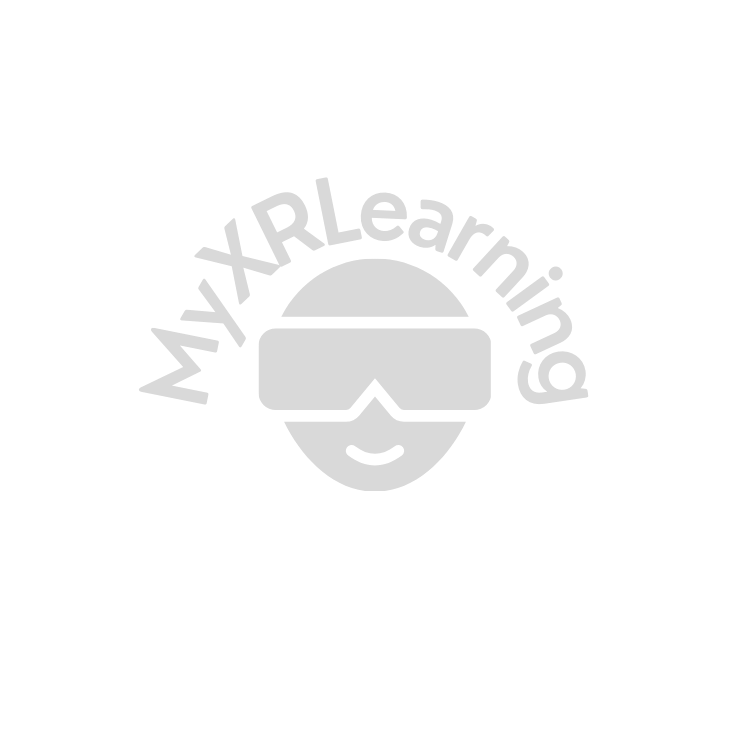Breaking into the XR (Extended Reality) industry, which includes virtual reality (VR), augmented reality (AR), and mixed reality (MR), requires a combination of skills, knowledge, and networking. It is an exciting yet challenging endeavor that demands a strategic approach. Acquiring a comprehensive understanding of the XR ecosystem, including VR, AR, and MR, is fundamental. Developing technical proficiency in relevant areas such as programming languages, 3D modeling, and spatial computing is crucial for success.
Education or training in fields like computer science or game development provides a strong foundation. Good training helps to craft a compelling portfolio showcasing XR projects is essential for demonstrating practical skills.
Networking is also a powerful tool; attending industry events and participating in online communities fosters valuable connections. These connections could lead to Internships and entry-level positions that offer hands-on experience.
Emphasizing both technical expertise and soft skills, such as creativity and communication, contributes to a well-rounded profile. Building a personal brand through online platforms and actively engaging in the XR community further boosts visibility and opportunities for breaking into this innovative industry.
Therefore, staying informed about industry trends and continuously updating skills is imperative in this fast-paced and dynamic field.
To break it down, here are some steps to help you get started:
1. Understand the XR Ecosystem
Familiarize yourself with the different components of XR, such as VR, AR, and MR. Understand the hardware and software that are commonly used in the industry. Three of the most important hardware that you should become familiar with are Oculus Quest 3, Pico 4, Apple Vision Pro. Aside from that, there is WebXR which uses WebGL to show XR on the internet. Tools such as A-Frame and 8th wall are great for that.
2. Develop Relevant Skills
Gain expertise in the necessary technical skills, depending on your specific area of interest within XR. This may include programming languages (e.g., C#, C++, Javascript, A-frame, HTML, CSS), game engines (Unity, Unreal Engine, Godot, Cry-Engine, Wonderland, or Lumberyard), 3D modeling (Blender) Maya, animation (Maya), and spatial design software (ShapesXR, Figma, Bezi).
3. Build An Educational Background
If you are already pursuing education or training in fields such as computer science, game development, computer graphics, or human-computer interaction, then you're well on your way to developing a foundation. However, if you are not, then the best way is to start learning Unity. A great place to start is taking my online course: Intro To VR Development Using Unity.
4. Build a Portfolio
Create a portfolio showcasing your XR projects, including any applications, games, or experiences you have developed. This is crucial for demonstrating your skills to potential employers or clients. When you learn to use a tool, create a portfolio project with it. Create a centralized location to showcase your portfolio if someone asks. Don't forget to create and develop your GitHub page along the way to demonstrate that you are consistently working on furthering your skills.
5. Start Networking
Attend XR-related events, conferences, hackathons, and meetups to connect with professionals in the industry. Networking can open up opportunities for collaboration, mentorship, and job opportunities. Platforms like LinkedIn and specialized forums can also be valuable for networking. LinkedIn is a great place to share your XR learning journey and show what you are capable of with others.
6. Join XR Communities
Participate in online communities and forums dedicated to XR, such as Unity or Unreal Engine forums, Reddit communities, and XR-specific websites. Engage in discussions, seek advice, and share your work. The idea of show and tell within a community is a great way to motivate yourself and stay accountable to making progress. In my course Intro To VR Development For Unity, I provide students with a list of communities that they can join.
7. Stay Informed On The News
Keep yourself updated on the latest trends, technologies, and developments in XR. Subscribe to industry newsletters, follow key influencers, and read relevant publications. As they share their news, you get to be on top of the trends. But I've made it easy because as a subscriber of My XR Learning platform, you receive relevant news right into your inbox without the need to search for it!
8. Get Internships and Entry-Level Positions
Look for internships, entry-level positions, or volunteer opportunities in XR-related companies. Gaining hands-on experience is crucial for building your resume and expanding your network. Reach out to companies and offer your time for experience. The best way to approach them is to ask them how you can help them with their mission. Chances are, you will have some kind of skillset that they can utilize to achieve their company goals. It could also be that you are smart enough to learn the basics quickly and they can rely on you to get up to speed quickly.
9. Showcase Soft Skills
In addition to technical skills, emphasize soft skills such as creativity, problem-solving, and communication. XR projects often require collaboration and the ability to think outside the box. Being able to work in a team environment is a crucial part of XR design and development. Creativity comes from thinking outside of the box. Problem-solving comes from understanding what the objectives are and how to overcome the challenges to reach those objectives. Communication is about understanding others, having empathy, and wanting to reach the greater good of a team.
10. Build a Personal Brand
Aspire to create a personal brand by maintaining a strong online presence. This includes a professional website, social media profiles, and a blog where you can share your insights and experiences in the XR industry. Over time, try to focus your skills on one specific area so that not only do you specialize, but also you can stand out from the crowd with that specialization.
Remember that the XR industry is dynamic, and employers often value a combination of technical expertise and creative problem-solving. By continuously learning, networking, and showcasing your skills, you can increase your chances of breaking into the XR industry.


